Taxi Driver (1976)
"I got some bad ideas in my head..."
You talkin' to me? You talkin' to me? You talkin' to me? Then who the hell else are you talking... you talking to me? Well I'm the only one here. Who the fuck do you think you're talking to?
It’s Seventies’ New York on WEEKEND FLICKS. Cinema for Grown Ups. On Friday, we had a look at Eyes of Laura Mars (1978), a Disco Deco extravaganza with a giallo undertone, set against a background of a decaying Manhattan. Two years earlier, Martin Scorsese’s Taxi Driver (1976) visited similar territory, or at least the decaying Manhattan bit, in one of the greatest American films of the 1970s.
Robert de Niro’s Travis Bickle is a Vietnam vet, an ex-Marine, living alone in a squalid bedsit with a rackety black and white television set— presumably eating straight from the tin, that sort of thing. You get the picture. And he gets a job as a taxi driver, in one of those traditional yellow checker cabs, doing night shifts, cruising around the less salubrious parts of New York, observing the pimps, the drug pushers, the punks, the prostitutes and the general low-life, from the relative safety of his taxi— in a series of brilliant, almost dream like sequences, illuminated by neon, and apparently influenced by the surreal dream scenes in A Bigger Splash (1973), the Hockney film, not the later thing with Tilda Swinton. And it’s set to Bernard Hermann’s brilliant jazz soundtrack, like a slow something from a hotel lounge, at odds with the decadence and degradation of the streets. Hermann, sadly, died only a few hours after completing the score.
One of my first sights of Manhattan, in the very early 90s, was the vision of a twenty-gallon woman waddling down Park, with a twenty-gallon pack of coke (the fizzy variety) strapped to her back, space woman style, ‘oxygen’ leads piped directly into her mouth. “See that Lady?” said the taxi driver, “Welcome to New York City”. This event was followed three days later by a fracas outside that haven of old-school civilisation, P. J. Clarke’s on 55th and 3rd, when a taxi passenger went berserk and tried to pull the driver out of the cab by his feet. Welcome to a world of paranoia and neurosis.
Martin Scorsese makes a cameo appearance in his own film, as a deranged New Yorker, jilted by his wife:
You must think I'm pretty sick or something. You know, you must think I'm pretty sick? Right? You must think I'm pretty sick? Huh? Right? I bet— I bet you really think I'm sick, right? You think I'm sick? You think I'm sick? You don't have to answer that. I'm paying for the ride. You don't have to answer that.
The rhythms of street speak are one of the many things I like about Paul Schrader’s script. Here’s Easy Andy flogging guns on the black market:
…In which case for you, I'd recommend .38 snub nose. Look at this. Look at it. That's a beautiful little gun. It's nickel-plated, snub nose, otherwise the same as the service revolver. That'll stop anything that moves… You interested in a automatic? It's a Colt .25 Automatic. It's a nice little gun. It's a beautiful little gun. It holds six shots in the clip, one shot in the chamber, if you're dumb enough to put a round in the chamber.
You feel sorry for Travis; you sympathise with him, or at least I do. He’s a desperately lonely man, at the bottom of the dung heap, with few prospects. And he’s clearly mentally unbalanced. As the film progresses, his face gets whiter and clammier, which explains, to some extent, his urge to assassinate a Senator, a VIP. To make Travis a somebody.
Returning to New York in the mid-90s (working for Phillips Auctioneers on the Upper East Side), I moved into the Olcott Hotel (seedy apartment suites, Tom and Jerry refrigerators and 1930s elevators) on the Upper West Side, bang next door to the Gothic splendour of the Dakota Building, star of Roman Polanski’s Rosemary’s Baby 1968, and scene of the Lennon slaying in December 1980— which meant a pleasant morning walk to work across Central Park. And it was here, at the Olcott, that Mark Chapman holed up before shooting Lennon. The hotel appears in Taxi Driver early on in the film, as it does again in Bryan Forbes’ The Stepford Wives (1975), at the beginning. Of course, Taxi Driver will forever be associated with assassination, of John Hinckley’s failed attempt on the life of Ronald Reagan— linked to his erotomaniac obsession with Jodie Foster, who plays Iris, the 12 year old prostitute in Taxi Driver.
The two women in Travis’ life are polar opposites. Betsy, played beautifully by Cybill Shepherd, is a political campaigner working to secure a presidential nomination for a Republican Senator. Cybill’s perfect. The soft voice, the soft blonde hair, the wrap-around von Furstenberg dress. For Travis, she’s the perfect woman. And, of course, he’s seriously out of his depth. Nothing like a porno movie to impress a middle-class chick. In a way, this reminds me of the Stephanie/Tony dynamic in Saturday Night Fever (1977), except Stephanie, the aspirational wannabe Manhattanite, comes from a working-class background, while Betsy’s decidedly Ivy League.
Which takes us to Jodie Foster's portrayal of Iris, the child hooker— with her cheap hot pants, tacky coloured sunglasses and platform wedges— a role which, for reasons I don't need to spell out to you, caused considerable controversy at the time. Like Cybill, Jodie's perfect— a brilliant, precocious talent. Jodie's only twelve, yet she's old beyond her years. It's superb casting. And as with Bugsy Malone, which came out in the same year, she steals the show.
Incidentally, a word about the ending. I'm very aware of the dubious thing called a spoiler alert, which, actually, just gives the writer an excuse to spill the beans. But let’s say there’s a possibility that the last five minutes of Taxi Driver might, actually, be a dream, all going on in Travis' damaged and deranged mind: from the moment he pulls the trigger, to the roll of the credits, which, again, takes us full circle, back to the beginning. Scorsese, I gather, is open to the idea, although Paul Schrader rejects it. But it's an interesting interpretation. In any event, the violent ending, although bloody, is deliberately desaturated, more Kensington Mud than Kensington Gore.
Does Taxi Driver inspire violence? Possibly. Perhaps. Probably not. As you've probably gathered, I'm against censorship, Cromwellian bans and all that comes with it. It's one of the reasons I called this newsletter ‘Cinema for Grown Ups'. For Taxi Driver is a beautifully made (and beautifully edited) study of urban alienation, of what can happen to obsessive people who live alone, without anybody there to sound off opinions, frustrations and the general crap of life. But then you knew that. Otherwise, you wouldn't be reading this.
I watched Taxi Driver (1976) on DVD, and, as ever, it’s also available to watch on Blu-ray— and Amazon Prime Video digital download for a bargain £3.49.
You’ve just been reading a newsletter for both free and 'paid-for' subscribers. I hope you enjoyed it. Thank you to all those of you who have signed up so far.
There are two options for Luke Honey’s WEEKEND FLICKS. Cinema for Grown Ups: ‘Paid-for’ subscribers get an extra exclusive film recommendation every Friday morning, plus full access to the complete archive— which is currently on film no. 61, and should list over a hundred films by the end of the year. It costs £5 a month (or £50 a year)— a bargain, frankly, when you compare it to a few cups of coffee, a packet of gaspers or a pint of beer in the pub. ‘Free’ subscribers get access to the Sunday newsletter, plus the ‘free subscriber’ films in the archive. Either option is a good bet. And when I get my act together, I’m planning to add a spoken voiceover (mine!) for paid subscribers.
I have no idea what we’re going to do next week, but it’s probably time to leave the 1970s and land on another decade. In the meantime, have a relaxing and cinematic Sunday….


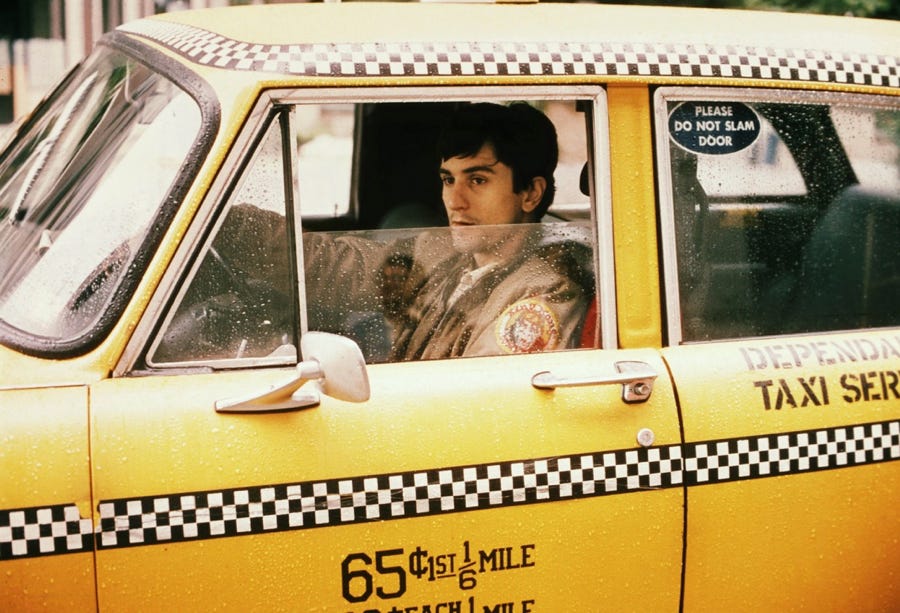
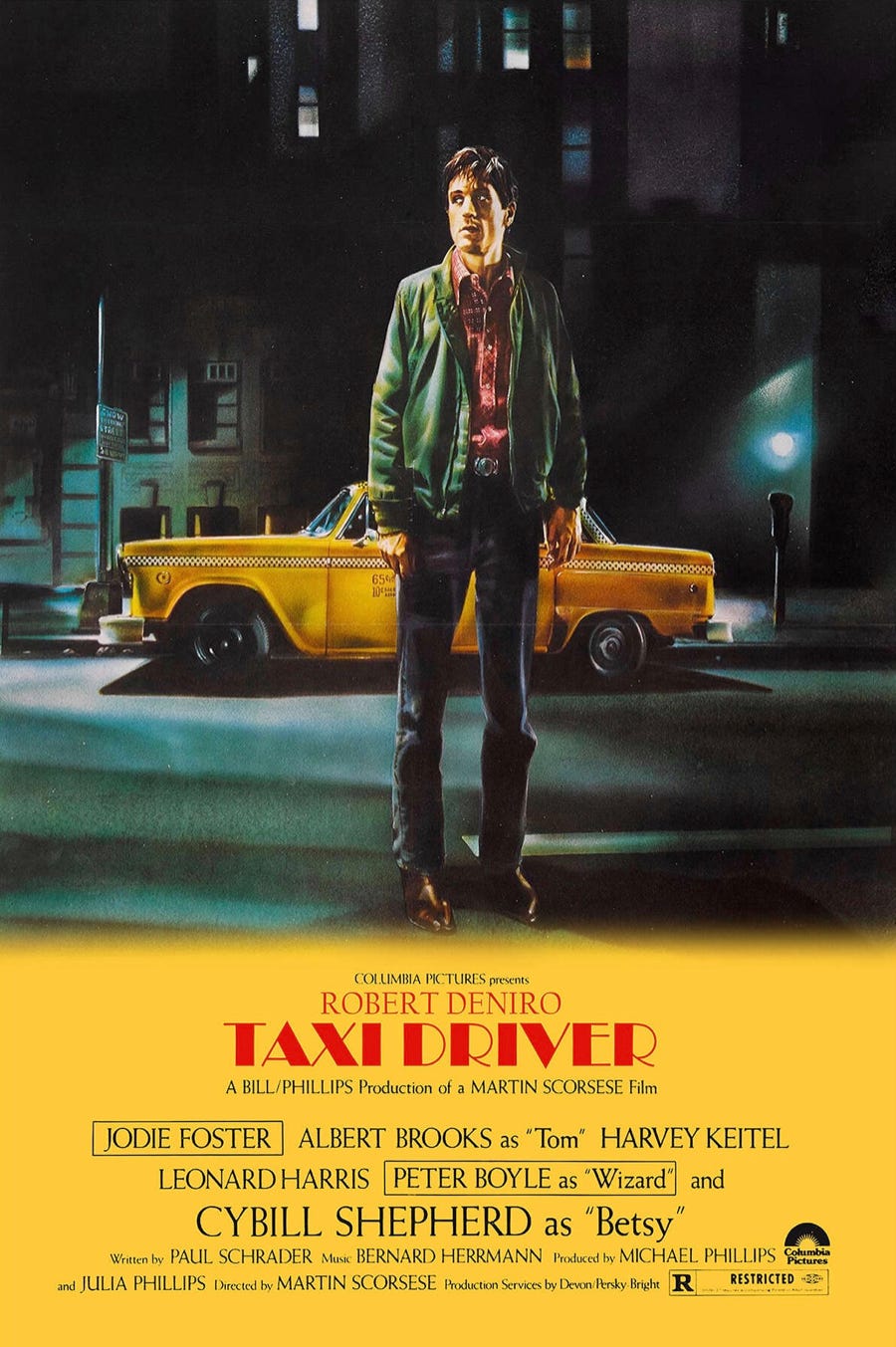
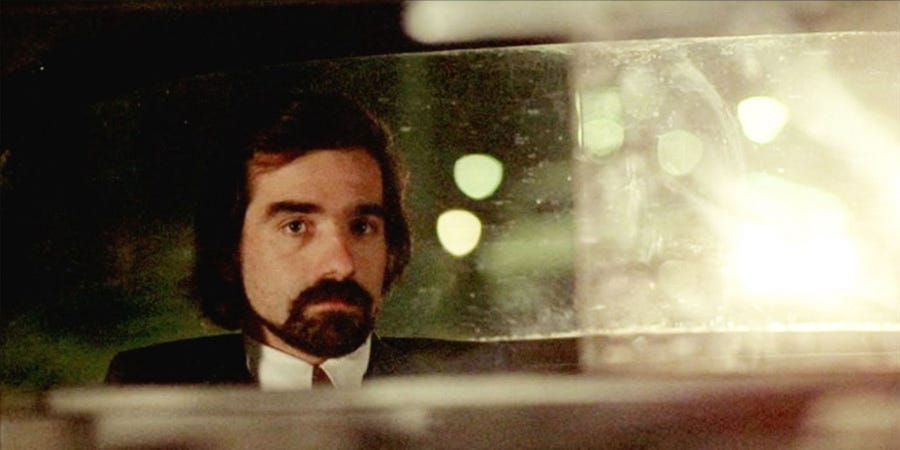
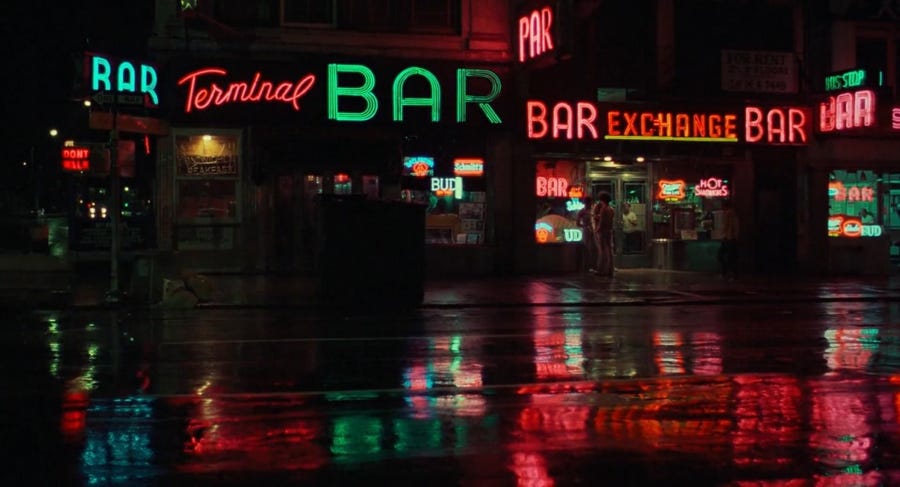
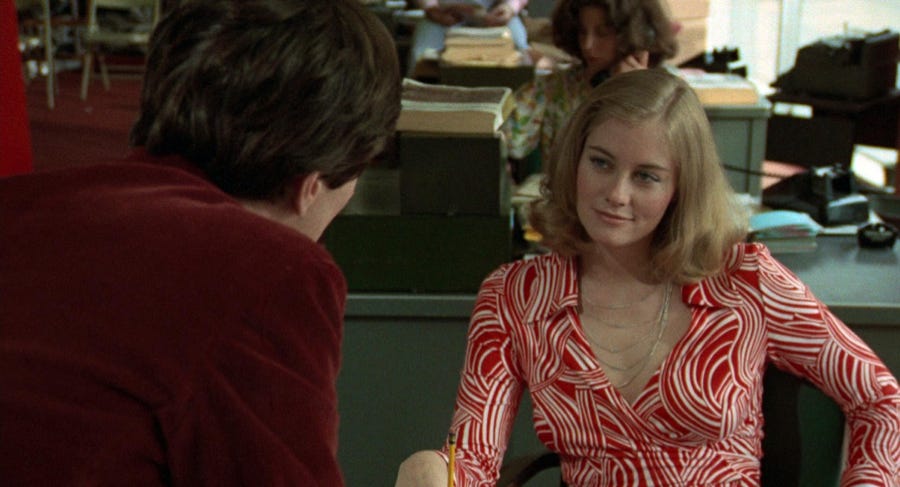
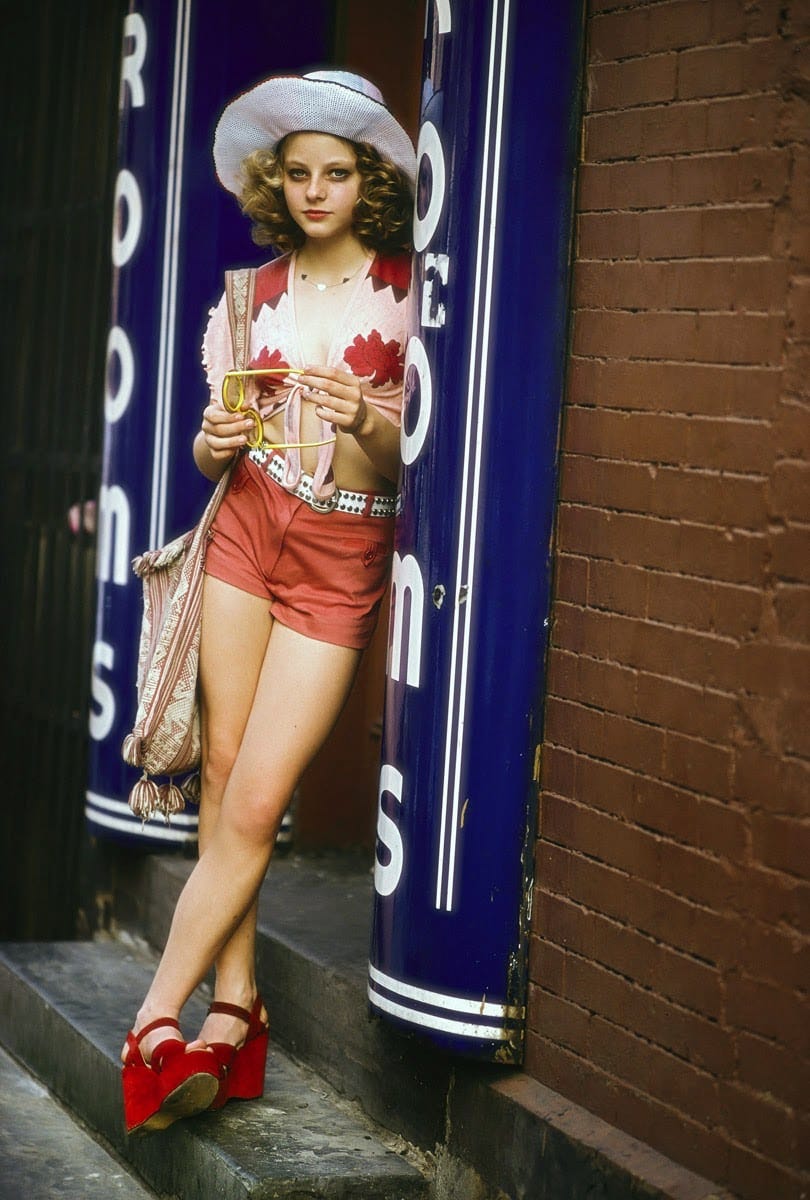


I watched it recently once again after many years and it is indeed a masterpiece. Jodie Foster is great and of course de Niro rocks.
One of my all time favourites, a masterpiece by Scorsese (the casting is on the money as always in his movies, including soundtrack and the gritty backdrop, but we get a sense of this is the earlier Mean Streets). De Niro plays Travis so heartbreakingly authentic, and Foster is outstanding. Apparently the shoot out scene at the end had such an unusual camera angle it's noted in cinematic history!!